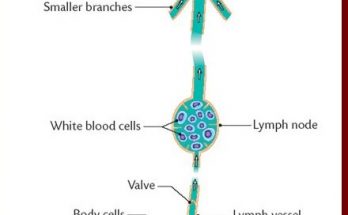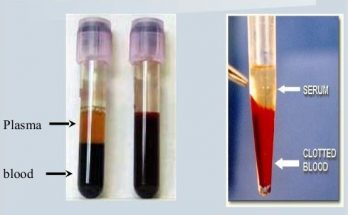Celsius Scale
Definition- The Celsius scale is a temperature measurement scale commonly used in many countries, including India. It is also known as the centigrade scale.
Explanation- On the Celsius scale, the freezing point of water is defined as 0°C, and the boiling point of water at standard atmospheric pressure is defined as 100°C. Temperatures below freezing are indicated with negative values, while temperatures above freezing are indicated with positive values.
Conduction
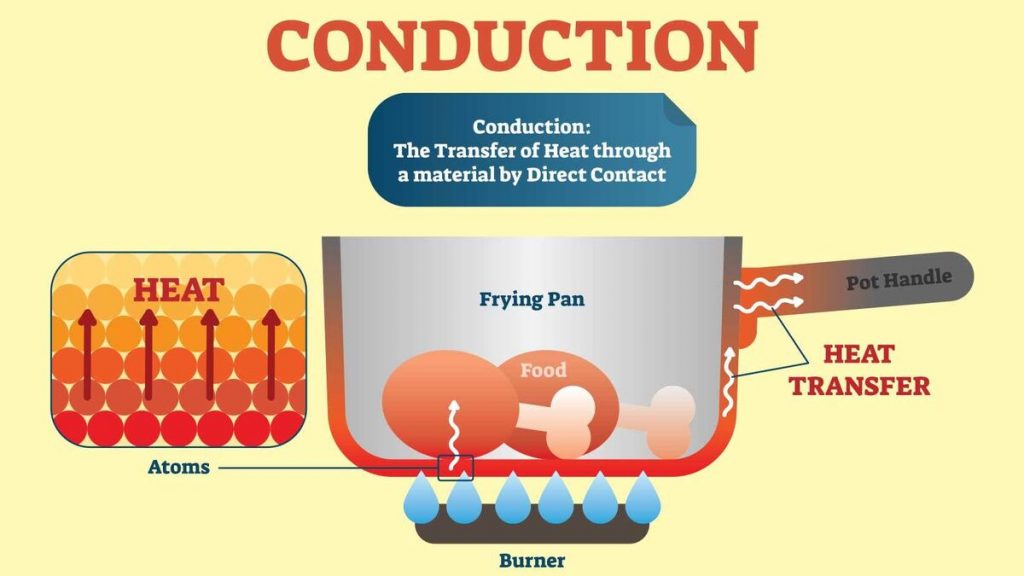
Definition- Conduction is the process of heat transfer through direct contact between particles within a substance. It occurs when heat travels from a hotter object to a colder one through direct touch.
Explanation– In solids, conduction is the primary mode of heat transfer. When you touch a hot pan, you feel heat transferring from the pan to your hand through conduction.
Conductor
Definition- A conductor is a material that easily allows heat to flow through it. Conductors are good at transferring heat.
Explanation– Metals like aluminium, iron, and copper are examples of conductors. They quickly transfer heat from a hot area to a cooler one.
Convection
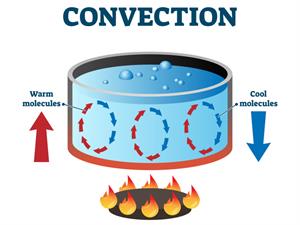
Definition- Convection is the process of heat transfer in a fluid (liquid or gas) where hotter fluid rises, and cooler fluid sinks, creating a circulation pattern.
Explanation- Convection occurs in fluids like air and water. For example, when you heat water in a pan, the warmer water near the heat source rises, while cooler water sinks, creating a circular motion of heating.
Also Check – Conduction, Convection, and Radiation- Class 7 Science Explained
Insulator
Definition- An insulator is a material that resists the flow of heat and does not allow it to pass through easily.
Explanation- Materials like plastic and wood are poor conductors of heat and are used as insulators because they prevent the easy transfer of heat.
Land Breeze
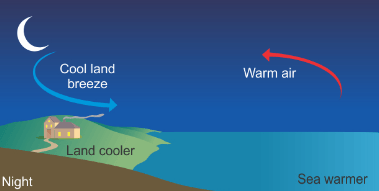
Definition- A land breeze is a wind that blows from the land towards the sea during the night. It is created because the land cools down faster than the sea.
Explanation- In coastal areas, after sunset, the land cools down quickly, and the air over it becomes cooler than the air over the warmer sea. This temperature difference causes a breeze blowing from the land towards the sea.
Radiation
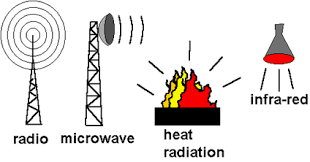
Definition- Radiation is the process of heat transfer in the form of electromagnetic waves, such as infrared radiation. It does not require a medium and can travel through a vacuum.
Explanation- Radiant heat transfer occurs when heat is emitted as waves from a hot object. This is how we feel warmth from the sun or a room heater, even if there’s no direct contact.
Sea Breeze
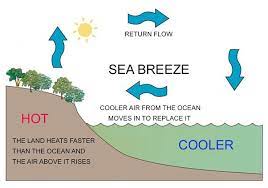
Definition- A sea breeze is a wind that blows from the sea towards the land during the day. It occurs because the land heats up faster than the sea.
Explanation- In coastal areas during the day, the land heats up more quickly than the sea. The air over the land becomes warmer and rises, creating a breeze blowing from the sea towards the land.
Also Chekc – Sea Breezes and Land Breezes – Class 7 Science explained
Temperature
Definition- Temperature is a measure of how hot or cold an object or substance is. It is typically measured in degrees Celsius (°C) or Fahrenheit (°F).
Explanation- Temperature indicates the degree of thermal energy an object possesses. The higher the temperature, the hotter the object.
Thermometer
Definition- A thermometer is a device used to measure temperature. It typically consists of a long, narrow glass tube with a scale and a bulb containing a temperature-sensitive liquid, such as mercury or alcohol.
Explanation- Thermometers help us determine the temperature of an object or the environment by measuring the expansion or contraction of the liquid inside the bulb in response to temperature changes. The scale on the thermometer provides a numerical value for the temperature.
Also Check – Class 7- Chapter 3- Heat- 5 Worksheets Solved and Unsolved
Also Check – NCERT Exemplar Solutions- Class 7 Science – Chapter 3 – Heat
Also Check – Class 7 science -Chapter 4 – Heat -Detailed Notes
Also Check – Class 7 science -Chapter 4 – Heat – Definition and Explanation of Important Keywords
Also Check – Chapter 3 Heat Activities: Simple Experiments for Class 7
Also Check – NCERT Solutions For Class 7 Science Chapter 4 – Heat
Also Check – Sea Breezes and Land Breezes – Class 7 Science explained in details
Also Check – Difference Between Sea Breeze And Land Breeze
Also Check – Rapid Revision – Class 7 Science -Chapter 3 – Heat– Complete Notes
